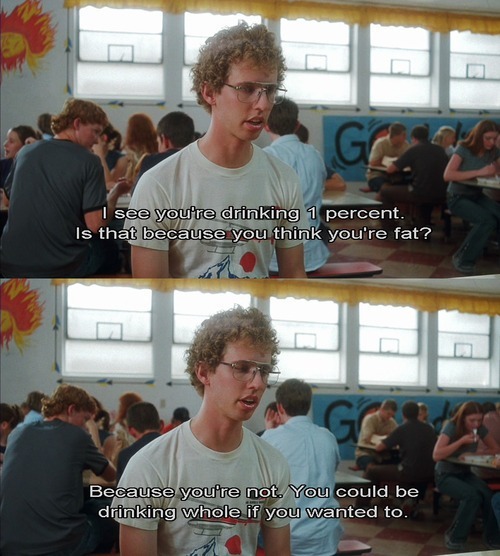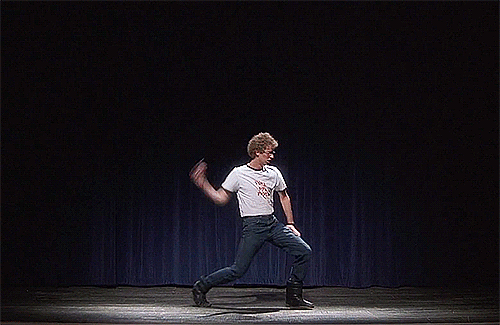“You are not blogging enough”
Awk. Yep. You got me.
Perhaps it’s no excuse, but I was of the impression that my fellow students would find no interest in the strange things I find on Youtube at the wee hours of the morning after browsing through cat video after cat video. But if the course demands cat videos then dammit, cat videos it is.
After a slightly uncomfortable friendly reminder that we should be blogging more, we ripped right into our sixth week of media studies — exploring narratives! Which is exciting for me as a film studies student, as this plays RIIIIGHT into stuff that I studied in week one of that unit. So expect plenty of blogs this week!
Once again, this week’s readings were by McKee – and explored the various elements of a story. Throughout the discussion of the elements, I found some sections difficult to apply to characters in narratives I had explored.
For example, Jon Heder’s portrayal the titular character of Napoleon Dynamite is no doubt the protagonist of the film. But does Napoleon Dynamite truly have conscious desires? Within the first few minutes of the film, a young boy on a schoolbus asks Napoleon what he’s going to do that day. Napoleon’s response is the first of many quotable lines:

Can we describe this as a desire, given its total ambiguity? It seems like even at the time he says it, Napoleon is unsure of what this entails — he just wants the kid to get off his back.
If we argue that Napoleon’s motives are the other plotlines explored in the film — to find a girlfriend or to help best friend Pedro Sanchez win class president; then new issues arise. Does Napoleon have the ability to pursue the object of desire — in this case, popular girl Trisha or awkward Deb? Napoleon’s drawing of Trisha is much different to her likeness, and his compliments to Deb are quite backhanded in that they question her self esteem.

As far as pursuing them to the end of the line? Well, Napoleon gives up hope after Trisha leaves him immediately after her arrival at the prom — but Deb and Napoleon do end up playing tetherball at the films end, supposedly sparking their relationship. Score 1, McKee.
I think a huge point where the Napoleon-as-McKees-protagonist falls flat is the empathy part. Do we truly empathize with Napoleon? I think he’s someone more to be laughed at than agreed with. Particularly with scenes like this.
This struggle to apply Napoleon Dynamite as a strong protagonist could either disprove McKee’s arguments, or concede that Napoleon is not a “protagonist”. However I feel that, even with a lack of empathy, there is still an audience bond with the characters within the film. Perhaps they are just such lovable goofballs. Perhaps they are just entertaining. This also goes against McKee’s view on what creates an audience bond – which he argues is audience empathy with a character.
There is also a lack of McKee’s “risk” in the film. If Napoleon doesn’t get Trisha or Deb, and if Pedro doesn’t win class president — what happens? Napoleon just goes back to the day-to-day life we’ve shared with him. McKee believes this makes a film boring — yet Napoleon Dynamite is a cult classic and well-loved because it is so quotable.

I suppose last week’s discussion on textual analysis has gotten to me too much, because I strongly question whether McKee’s definitions and arguments are too conclusive and does not consider narratives such as Napoleon Dynamite.

“Yesssssssssssssssss”

Leave a Reply
You must be logged in to post a comment.